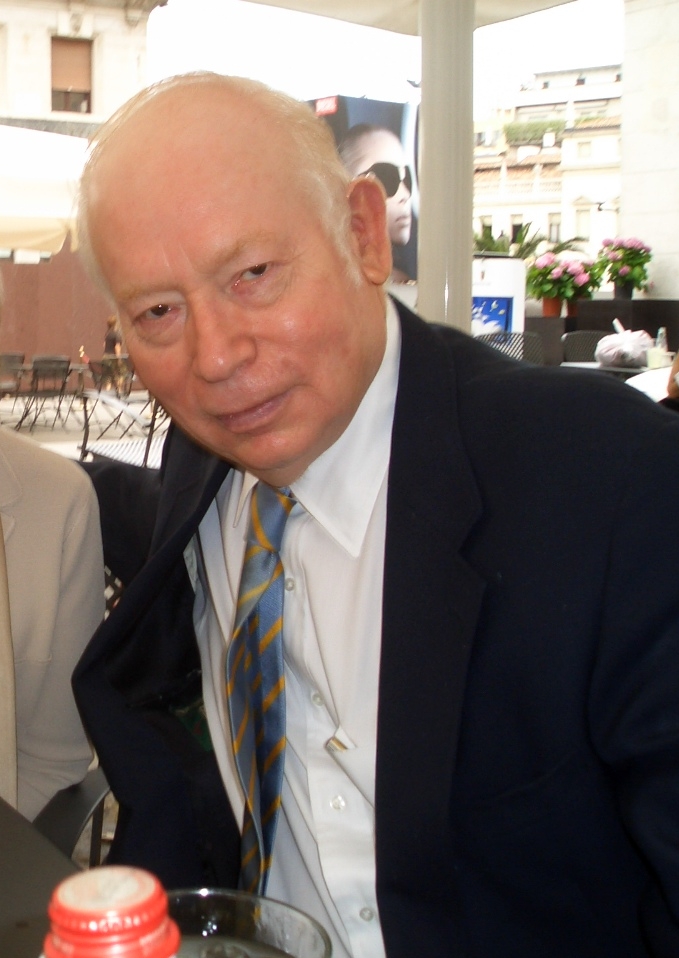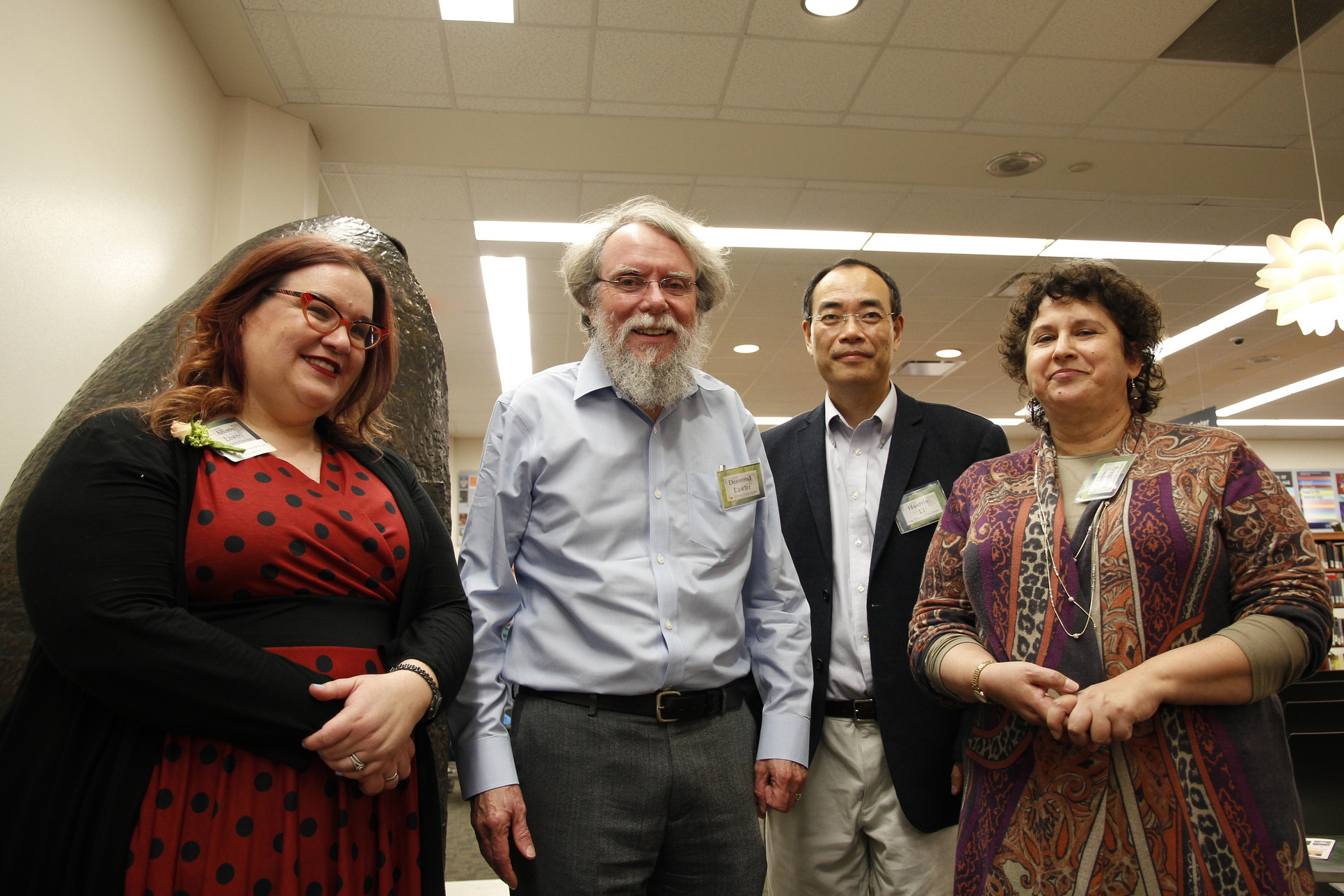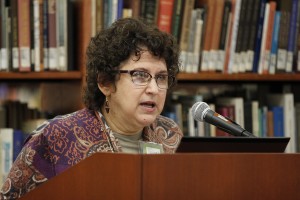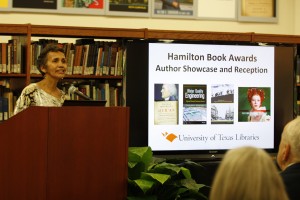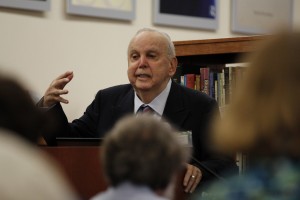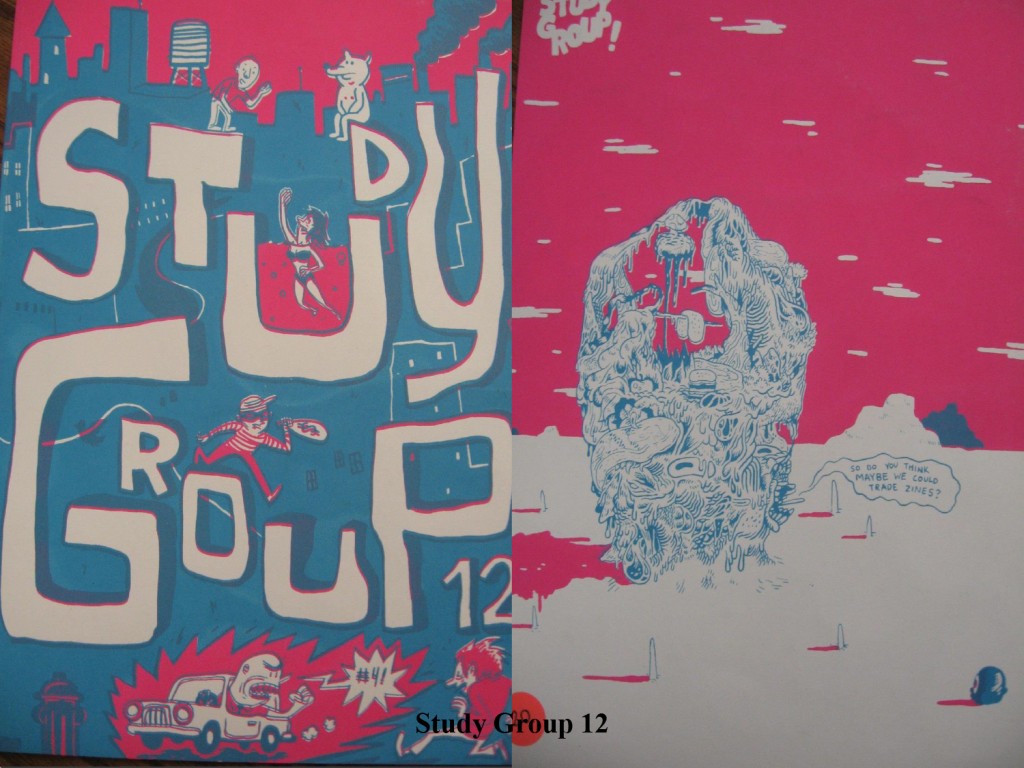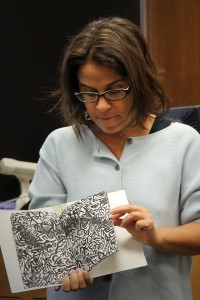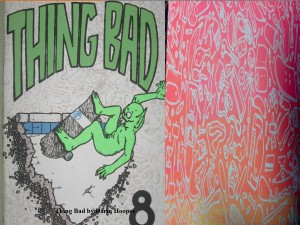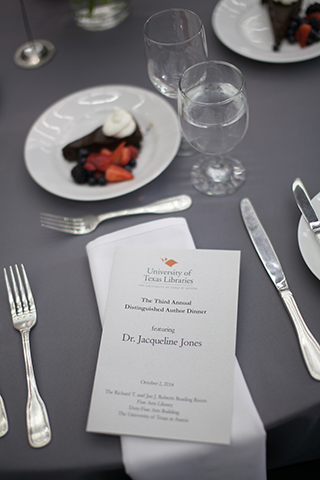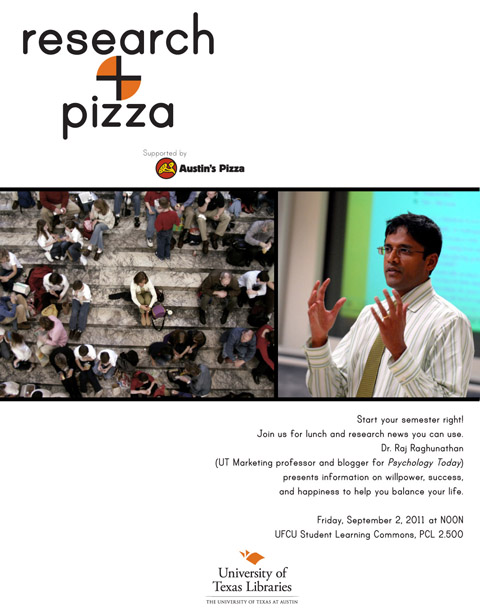October is Open Access Month. Throughout the month, guest contributors will present their perspectives on the value of open access to research, scholarship and innovation at The University of Texas at Austin.
This installment provided by Dr. Maryjka B. Blaszczyk,Postdoctoral Research Associate, Department of Anthropology.
A need for open access to research materials to spur new discoveries in biological anthropology

A major aim of research in biological anthropology is to understand how humans have ended up looking and behaving the way that they do. To understand the evolution of our body form, anthropologists look at fossils. Behavior, however, does not fossilize, and so we turn to studying our closest living relatives, the nonhuman primates, preferably in their natural habitats where they have to deal with selective pressures such as avoiding predators and finding enough food to eat. Primate behavior field data are hard-won, involving substantial investments of time and resources. Apart from jumping through logistical hoops such as obtaining permits and building relationships with local stakeholders in far-flung locales, establishing a new field site for behavioral fieldwork involves months if not years of patiently following wild primates around to habituate them to researchers’ presence. Once habituated, data collection begins, with blood, sweat, and tears invariably spilt as one accumulates precious hours of detailed behavioral observations on this group of primates at this place and particular time.
These investments are one reason given by field primatologists as justification for closely guarding their data. Another is the unique insights they have into the lives of their study animals, having spent hours upon hours of observation time with them. Some primatologists argue that researchers not familiar with their study site and animals may misuse the data if they were to make it widely available, subjecting it to improper analyses or not accounting for information about the study site/animals that is known only to researchers who have worked there. Researchers also generally have many ideas for secondary analyses of their data that they plan to get to in the future.
Each of these arguments is by no means specific to primate behavioral ecology, with very similar arguments having been made, for example, by medical researchers working with clinical trial data. Of course, clinical trial data has a substantially higher status (given its applications for human health and welfare) than primate behavior data, and arguments about the costs and benefits of trial data sharing have been ongoing in high profile forums for several years. Data sharing advocates point to benefits such as new discoveries, better metanalyses, and correction or confirmation of findings in the scientific record, which they argue far outweigh potential risks such as incorrect analyses or data misuse. We all know researchers who have been sitting on data for years (even decades) with plans for secondary analyses, many of which they will never find the time to conduct and publish. In the case of primate field data collected on a specific population at a specific place and point in time – and frequently on endangered primates living in rapidly changing habitats – these data cannot be reproduced, so it is a double shame that they may never make it into the scientific record.
Primate behavioral ecologists are included in Anthropology departments because comparative studies on primate behavior illuminate the ways in which humans differ from and are similar to our closest kin, allowing us to better understand the evolutionary ecology of our lineage. However, many comparative studies are hampered by poor descriptions of how data in primate field studies were collected and processed, and many large-scale comparative studies cannot be undertaken unless raw data itself is made available. Behavioral ecologists should take a page out of their molecular primatology colleagues’ playbooks, where publication of genetic data alongside scientific articles is the rule. This type of data sharing has enabled large-scale comparative phylogenetic studies that have given us a rich understanding of primate evolution. It is time for primate behavioral ecologists to catch up and to make sharing of data as well as associated behavioral and ecological data collection protocols the norm. Who knows what insights await us.



